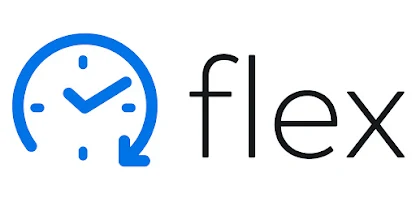Less Than Zero
When it seems the governent has given up on protecting the enviornment, a new wave of eco-concious individuals have taken a stand to protect it, and their future.
It’s always been clear that the United States has a bit of a waste problem. Whether it be food waste, organic waste, or even just throwing away everyday items, the lack of education about what we throw away and where it really ends up is a growing problem. So it’s not seen as a surprise that a small percentage of Americans have taken it upon themselves to transition to a zero waste lifestyle.
Zero Waste is a philosophy that originally started to pick up around 1998 with the goal being to produce as little waste possible, eventually producing zero waste. Whether it be swapping their usual items for ones that were reusable, or even producing their own goods, the Zero Waste philosophy seemed to be one of the most positive ones of it’s time. However, the popularity of it dwindled throughout the 2000’s, only to be making a reappearance in the past few years.
Many people who begin adapting their life to fit the requirements of the Zero Waste philosophy start with the way they grocery shop. Many products on store shelves are wrapped in plastic, put in boxes, or sometimes even both. It’s easy to switch some of these products out, bringing your own item and shopping in bulk. Dry products like nuts, beans, and grains are the most common. However, most stores don’t offer zero waste alternatives in some products, which can cause a bit of a learning curve. Those who can get past the curve however often apply the philosophy to their entire lifestyle.
The second step is to tackle the non-food products. From laundry detergent to cleaning supplies, many find themselves amiss with how to replace the products they’ve never even thought about. Many turn to simply focusing on limiting waste in the kitchen, while some take the plunge and begin searching for alternatives. People make their own cleaning supplies, or search for ones in glass containers. Whatever people choose, the outcome is always more ideal than their original waste management system.
Although there are plenty of assumptions as to why it’s popularity has begun to skyrocket in the past few years, many Millennial and Generation Z adults and teens attribute it to the many steps taken by President Trump and his policies which have put the environment on the bottom of his priority list.
Through the past two years of the Trump presidency, many laws and acts have been rolled back which had been put in place by the previous president, Barack Obama, which protected the environment.
“Last November, President Trump published a series of tweets blaming poor forest management for the deadly fires that destroyed homes and lives in California.” National Geographic commented in an article addressing the wildfires that swept the west coast in 2018.
In the past two years, America has taken more steps backwards in protecting the environment than it has taken forward.
Another issue is the lack of education when it comes to the waste industry. For many, throwing away something makes that item out of their responsibility. However, many objects don’t make it to a landfill. Some products end up on the side of the road, some filter through streams into the oceans, and some even end up polluting drinking water supplies. The problem with trash is that even if you think you’ve handled it properly, odds are it won’t end up where it’s supposed to.
“There is no such thing as ‘away’. When we throw anything away, it must go somewhere.” Annie Leonard, an environmental activist, commented in reference to the pollution epidemic. Leonard is currently a member on the board for the Global Alliance of Incinerator Alternatives, as well as having previously served on the board for the Grassroots recycling network. Both organizations actively work to improve environmental conditions.
Some account this call for action to the Millennials and Generation Z, the new generation of teenagers and young adults who are taking the steps necessary to save their environments – and their futures.
Near the end of July in 2018, the court case Juliana v. United States began, where 21 children attempted to sue the U.S Government for its role in causing climate change. However, when the case failed to convince the Supreme Court, the government rushed to finish the case and keep it hidden from the press. The trial still hasn’t officially been taken to court and settled.
Millennials have been famously (and perhaps sometimes infamously) been known for their bold opinions and their push for change. From the housing market, luxuries like diamonds and gems, to even things as simple as toast, Millennials have no problem stepping forward and changing the path those following them will come down. Now they’re taking steps forward to try and change the effects of pollution and climate change by changing their own personal habits.
However, even with America as a whole not taking the steps necessary to protect the environment, these individuals are making it clear they’re up to the task. The Zero Waste lifestyle has begun to spring back to life, with activists everywhere taking the first steps to help rejuvenate the environment.
It’s obvious that the Zero Waste philosophy isn’t an easy one to live by, however the positive effects that come with it outweigh the possible negative learning curve. One thing is certain; America needs to tidy up the way it tidies up or the environment may not last another decade.

Number of years on the paper: This is Molly's fourth year on the paper
Grade Level: 12th grade, Senior
Favorite part of Newspaper: "coming together...





